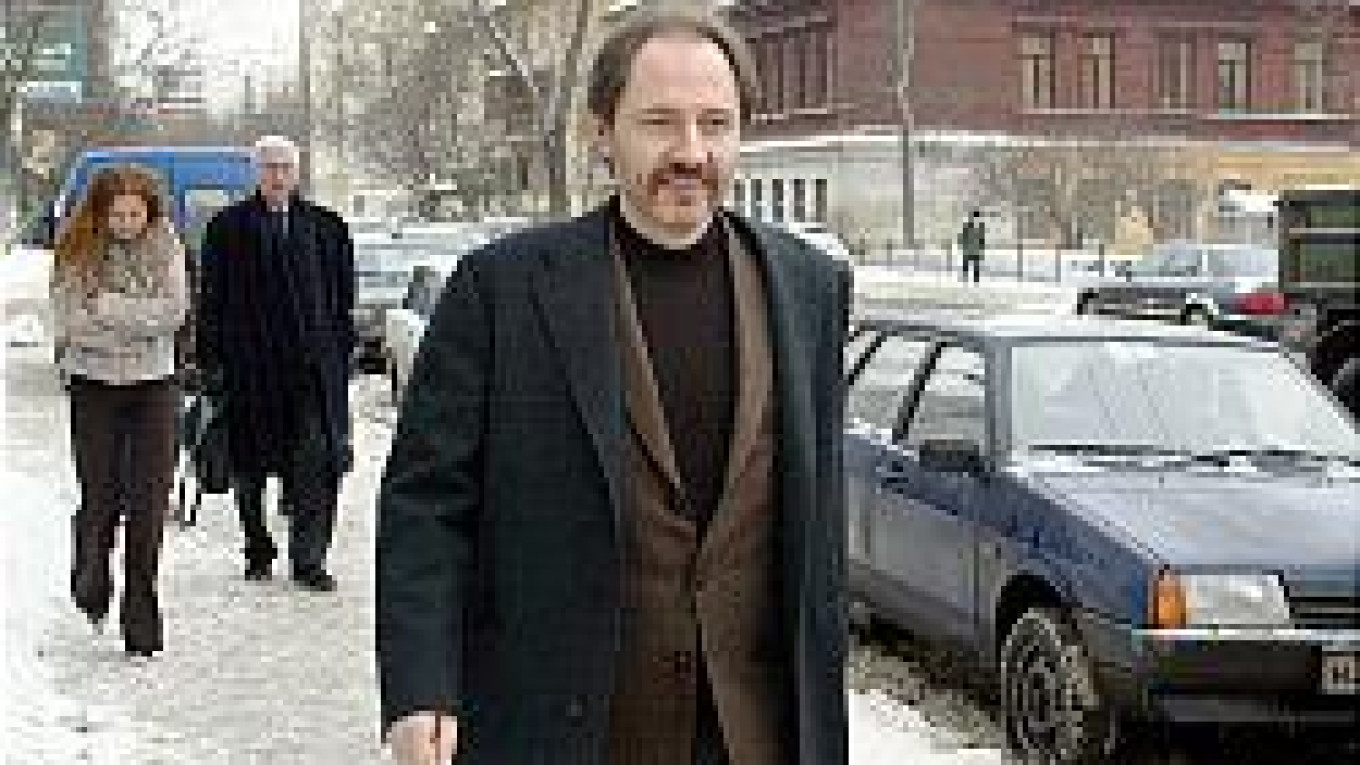The market treated the news as a moderately positive signal, and Yukos shares rose by 2.45 percent, closing at $11.70 on the RTS exchange.
Shakhnovsky, 46, is among the wealthy Yukos shareholders charged in a Kremlin-backed legal attack that is widely believed to be aimed at taming the political and business ambitions of Russia's richest man, Yukos founder Mikhail Khodorkovsky.
Shakhnovsky's trial was seen as a litmus test of what might be in store for the other shareholders and the oil giant itself.
"The ruling offers some glimmer of hope that Group Menatep is coming to some kind of agreement with the Kremlin," said Paul Collison, oil and gas analyst with Brunswick UBS. Group Menatep is the parent company of Yukos.
But Collison added: "Shakhnovsky is no Khodorkovsky, so the news is good but there are still no profound developments."
Khodorkovsky and his close ally Platon Lebedev are jailed and awaiting trial on charges including fraud and embezzlement. Another three key shareholders, Leonid Nevzlin, Vladimir Dubov and Mikhail Brudno, have been charged with similar crimes and put on an international wanted list.
Yukos, meanwhile, is facing a $3.4 billion tax bill for 2000 and is being subjected to hundreds of checks by government agencies.
After the trial at Moscow's Meshchansky court, Shakhnovsky, the former head of Yukos' financial arm, Yukos-Moskva, said he had been kept in the dark about what the verdict would be. "I was expecting any kind of verdict," he said.
He refused to speculate how the verdict might affect the cases of his fellow shareholders.
Shakhnovsky remained calm throughout the final session, only occasionally wiping his forehead with a handkerchief as Judge Irina Kolesnikova read page after page of her verdict in a monotonous, soprano voice.
He and his adult daughter, Yulia, who came to support her father, both looked relieved when the trial ended.
Shakhnovsky would not say whether he believed his case was politically motivated, but he maintained his innocence.
"I am not guilty. I said it before and can say it now," he said.
Shakhnovsky paid $1.8 million last year after being charged with tax evasion. He said Thursday that he only paid the bill in an attempt to calm things down.
"I intended to fight it later," he said.
But he did not sound too sure Thursday about the likelihood that he would fight and win the case.
"The tax authorities now have a strong point -- my conviction of tax evasion," he said.
He and his lawyers also refused to say whether the ruling would be appealed. His lead lawyer, Genrikh Padva, said the verdict needs to be carefully studied before a decision is made. Padva brushed aside a reporter's request for an explanation of how the judge could sentence his client to one year in prison and then release him.
The judge had said Shakhnovsky was free to go because the "situation had changed" -- language for a legal clause that allows prosecutors to close a case when the accused is no longer considered a danger to society.
Prosecutor Dmitry Shokhin, who represented the state in the case, said the Prosecutor General's Office got exactly what it wanted and would not appeal.
"The prosecution and the court agreed on the fundamentals of the case, and we agree with the verdict," he said.
In a remarkable sign of no hard feelings, Shakhnovsky and Shokhin sat next to each other and chatted amicably as they waited for copies of the verdict. As Shokhin talked to journalists, Shakhnovsky even tried to correct him on minor details of the case.
The verdict is a signal to Yukos shareholders that they can cut a deal, political analyst Sergei Markov said. "This is definitely a signal from the authorities that disarmament is possible and those who disarm will be spared from legal pressure," he said.
But it also shows that there is a split in the Yukos camp, he said. Shakhnovsky is the only shareholder to have met the state's demands -- in this case paying the tax bill -- and is the only one no longer facing prosecution.
"And a split is a sign of defeat," Markov said.
Christopher Granville, chief Strategist at United Financial Group, saw Thursday's ruling as a lesson to Yukos.
"The means of teaching the lesson were not to deliver a destabilizing punishment but to make a point," he said.
"So the market's positive reaction is well-founded."
A Message from The Moscow Times:
Dear readers,
We are facing unprecedented challenges. Russia's Prosecutor General's Office has designated The Moscow Times as an "undesirable" organization, criminalizing our work and putting our staff at risk of prosecution. This follows our earlier unjust labeling as a "foreign agent."
These actions are direct attempts to silence independent journalism in Russia. The authorities claim our work "discredits the decisions of the Russian leadership." We see things differently: we strive to provide accurate, unbiased reporting on Russia.
We, the journalists of The Moscow Times, refuse to be silenced. But to continue our work, we need your help.
Your support, no matter how small, makes a world of difference. If you can, please support us monthly starting from just $2. It's quick to set up, and every contribution makes a significant impact.
By supporting The Moscow Times, you're defending open, independent journalism in the face of repression. Thank you for standing with us.
Remind me later.


